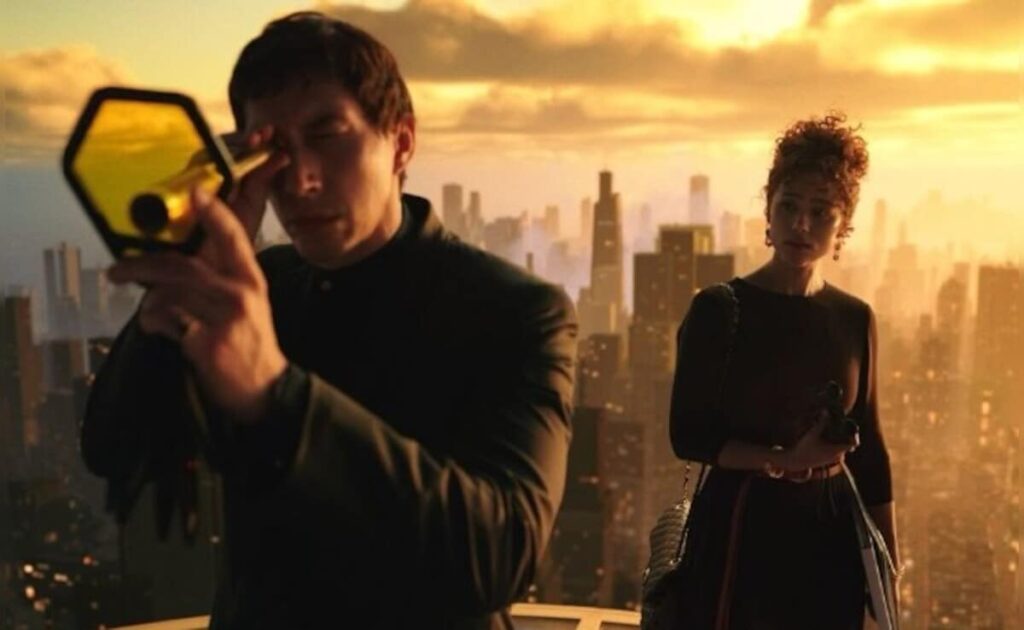Unabashedly self-indulgent and deliriously and unceasingly inventive, Megalopolis, Francis Ford Coppola’s intended million swan song might prove to be as much a $120 million folly as an 85-year-old director’s leap of artistic faith. “When you leap into the unknown, you prove you are free,” says one character in the film. If nothing else, Megalopolis is fearless.
It is the sort of big-swing filmmaking that only a master who has done enough in a long and eventful career marked by a few of American cinema’s greatest works can attempt without having to worry about proving anything to the industry or to the world at large.
Like Cesar Catilina (Adam Driver), the film’s principal character, who like everybody else around him bears a Roman name, Coppola is obsessed with the past, perturbed by the present and seduced by the future.
The hero, a visionary architect who plans to stop time and change the course of history, may not succeed given the scale of his ambition. The film, too, may be doomed to failure considering that it allows itself to stop at nothing. But as you watch Megalopolis unfold, often in an ungainly manner, you do sense that it could not have been anything other than what it has turned out to be.
Megalopolis was meant to be mega-messy. In its messiness lies its message. In a sprawling and exceedingly exuberant production that is at once retro and futuristic, Coppola wants all of us to see that all is not well with American democracy – and with cinema. “Mankind’s worst enemy is civilization,” Cesar says at one point.
At another juncture, he is asked if Utopia is where solutions are available for every problem, he retorts that it is a place where questions can be asked. Megalopolis, in the way that it pans out and the haphazard structure that it stands on, offers no solutions. Coppola does not have any, with the exception of that one thing that underlines the filmmaker’s and his protagonist’s enterprise – hope. Megalopolis asks plenty of questions, some to the point, others arbitrary.
Coppola, whose name appears above the title, adds “A Fable” at the bottom with the obvious purpose of creating space and scope for the flights of fancy that transport the audience backward and forward with its evocation of history, philosophy and literature. The words of Ovid, Sappho, Petrarch and Rousseau are littered across the film.
Will we (America) fall prey like the Roman Empire to the insatiable appetite for power of a few men? That is the question Megalopolis opens with. Cesar is about to step off the outer ledge of a skyscraper when he orders time to stop. It obeys his command. And then the film goes in all directions to capture the chaos of the world in which Cesar is seeking to make something happen for the common good.
Coppola obviously still retains his belief in both America and its cinema, but has clearly been driven to a point of despair by a rapid, seemingly irreversible shrinkage of foresight, sagaciousness and plain common sense in public life and in everything else that goes with it.
Greed-fuelled banking and myopic urban planning have left people struggling with a degree of debt and hopelessness that has only made it easier for the wealthy to get wealthier.
In Megalopolis, New York is New Rome, an urban site of an ideological battle between Cesar Catilina, who wins a Nobel Prize for developing a revolutionary building material he calls Megalon, and the city’s crusty, change-resistant mayor Frank Cicero (Giancarlo Esposito).
The gifted architect envisages giving the city a dramatic makeover and handing it over to the people but the mayor has plans to erect a casino to bolster revenue given the sad state of New Rome’s economy. Cicero and his cronies, including a self-serving businessman played by Dustin Hoffman, want to stick with steel and concrete while Cesar has other ideas.
The animosity between Cesar and Cicero goes back to the time when the latter was in charge of an investigation into the murder of Cesar’s wife. Cesar himself was the prime suspect but the charge could not be established as the body of the victim vanished into thin air.
Cesar has no dearth of women. While television reporter Wow Platinum (Aubrey Plaza), with whom he has a secret affair, and the mayor’s independent-minded daughter Julia (Nathalie Emmanuel), who develops a relationship with him, aren’t exactly invisible and powerless, the women in Megalopolis do not make as strong an impression as they should have given the range of ambitious activities they indulge in. Nothing they do is divorced from what the men deign.
Wow aspires to power and money, so she conspires to marry the richest man in New Rome and Cesar’s uncle, Hamilton Crassus III (Jon Voight). She has her sights set on the bank that the old man owns as well as on his foppish son Clodio (Shia LeBeouf), who responds in kind to her advances.
Julia, on the other hand, defies her mayor-father and not only buys into Cesar’s vision but also starts a romance with him. She emerges as the architect’s most trusted aide when she bails him out of a tight spot involving a sex video doctored by his cousin Clodio.
Shaken and shamed by the scandal, Cesar bemoans: “I’ve lost my power. I cannot control time anymore.” But he keeps exhorting time to show him the way forward. Within the parable-like expanse of Megalopolis, none of the cries of despair or the assertions of optimism are delivered with unbridled confidence.
The film, which plays out in unstable world, itself reflects within its whimsical folds, much of that instability. Megalopolis goes out on a limb and appears to tilt at windmills, but the visually dazzling, if frequently chaotic, canvas that it rustles up could actually stop time and develop a cult following as an ambitious and perhaps commercially unviable endeavour from a filmmaker who has nothing to lose.
